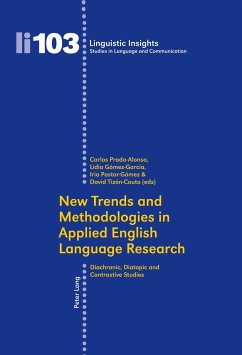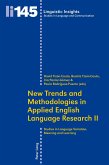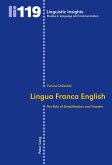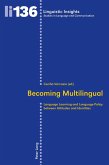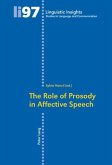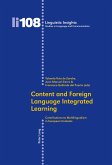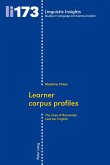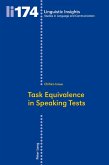This book has been shortlisted for an ESSE book award 2012 in English Language and Linguistics, Junior Scholars.
This volume approaches the analysis of variation in English from diachronic, diatopic, and contrastive/comparative perspectives. The individual case studies, all closely interrelated, are organized into three parts or sections. Part I (Diachronic Studies) applies a variationist methodology to the analysis of developments in the use of the courtesy marker please, adverbs in -ly, the s- genitive and a number of phrasal combinations with the verb get. It also examines Early Modern English regional dialect vocabulary. Part II (Diatopic Studies) is concerned with the analysis of several morphological and phonological features in different varieties of English, namely Standard English, Modern Scottish English, Galwegian English, and Black South-African English. Part III (Contrastive Studies) contains four chapters dealing with the contrastive analysis of a number of morphosyntactic features, such as the use of modifiers of adjectives by advanced learners of English, the acquisition and use of aspect by advanced EFL learners with different mother-tongue backgrounds, a comparison of the tempo-aspectual categories of English and Italian, and some of the problems encountered by researchers when compiling and analysing learner corpora of spoken language.
This volume approaches the analysis of variation in English from diachronic, diatopic, and contrastive/comparative perspectives. The individual case studies, all closely interrelated, are organized into three parts or sections. Part I (Diachronic Studies) applies a variationist methodology to the analysis of developments in the use of the courtesy marker please, adverbs in -ly, the s- genitive and a number of phrasal combinations with the verb get. It also examines Early Modern English regional dialect vocabulary. Part II (Diatopic Studies) is concerned with the analysis of several morphological and phonological features in different varieties of English, namely Standard English, Modern Scottish English, Galwegian English, and Black South-African English. Part III (Contrastive Studies) contains four chapters dealing with the contrastive analysis of a number of morphosyntactic features, such as the use of modifiers of adjectives by advanced learners of English, the acquisition and use of aspect by advanced EFL learners with different mother-tongue backgrounds, a comparison of the tempo-aspectual categories of English and Italian, and some of the problems encountered by researchers when compiling and analysing learner corpora of spoken language.

